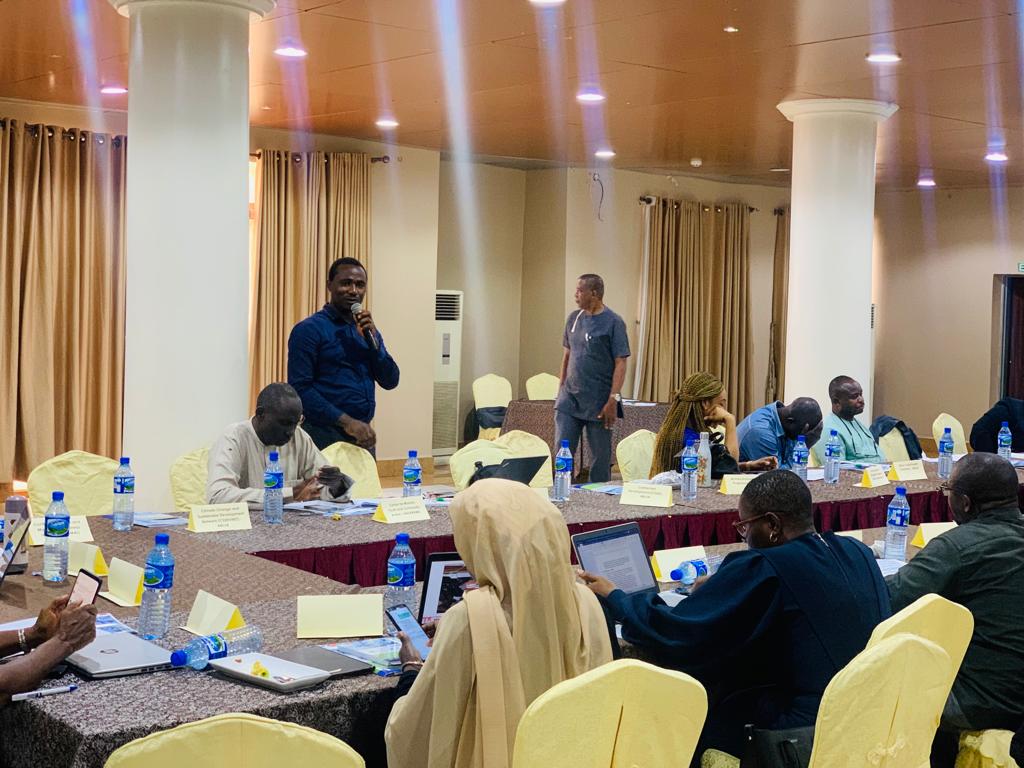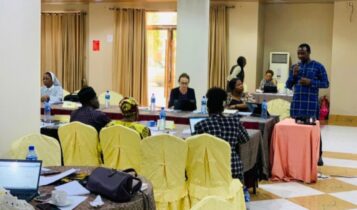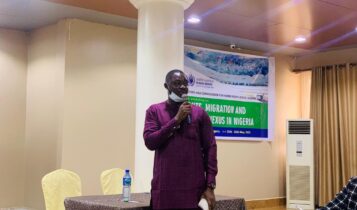
Rising sea levels, floods, droughts, and forest fires are just a few of the destructive effects of climate change that are already taking a terrible toll on human lives. The climate crisis keeps making lands unusable or incapable of supporting the types of livelihoods on which populations have relied for ages.
Many of these negative effects of climate change are already being seen in the Sahel region of Africa, especially in northern Nigeria, which the Intergovernmental Panel on Climate Change has designated as a climate hot spot.
The enjoyment of human rights, such as the rights to food, water, appropriate housing, and life, is hampered by such negative repercussions. They also interact with a number of other factors that influence migration or alter established migration trends.
“All people have the right to a clean, healthy and sustainable environment,” Mr Samuel Jinadu, Programmes Advisor at Climate and Sustainable Development Network of Nigeria (CSDevNet), lamented.
Expressing his displeasure during an in-person workshop organised by the Nigerian Office of the United Nations High Commissioner for Human Rights on 26th May 2022 in Abuja, he asserted that climate change still infringes human rights and engenders migration in Nigeria.
Therefore he urged the states to address the underlying causes that force people to move in response to climate change and environmental factors, and also facilitate migration with dignity and address the specific human rights protection needs of migrants, this includes a provision of food, clean water, access to good housing, health care etc.

“In Nigeria, climate change has significant impacts on the ecosystem, and natural resources, agriculture, livelihoods, human settlement, health etc. rising temperatures and extreme weather induces new challenges and exacerbates existing ones. The country’s northern region faces chronic aridity and riverine flooding while the southern region faces the extensive risk of storm surge,” Samuel Jinadu said.
“Environmental, economic and social impacts of climate change directly or indirectly affect the full enjoyment of a multitude of internationally guaranteed human rights and aggravate or interact with other stressors, such as increased poverty level and social conflicts posing a progressive challenge to sustainable development,” he added.
On his part, Mr Obinna Nweze, Stakeholders Engagement Assistant of CSDevNet, highlighted some underlying issues of climate-related migration.

“In the face of these challenges, migration is a common adaptation strategy for the affected population facing deteriorating living conditions. Though human rights are universal, those who migrate, whether voluntarily or forced, short-term or long-term, within or across borders, face difficulties accessing their rights,” he said.
“While movement over longer distances may be inhibited when resources and financing are constrained, migration has and will continue to be a strategy used during times of environmental stress,” he added.
The challenges created by climate change require a global response. Efforts to address its impacts will only be effective if they incorporate international cooperation and assistance.
States have an obligation to cooperate under the United Nations Framework Convention on Climate Change (UNFCCC), the Charter of the United Nations, the International Covenant on Economic, Social and Cultural Rights (ICESCR), other human rights instruments and international cooperation to achieve universal protection and full realization of all human rights.
In light of these obligations, states should engage in cooperative efforts to ensure the safety and dignity of all those moving in the context of climate change.
